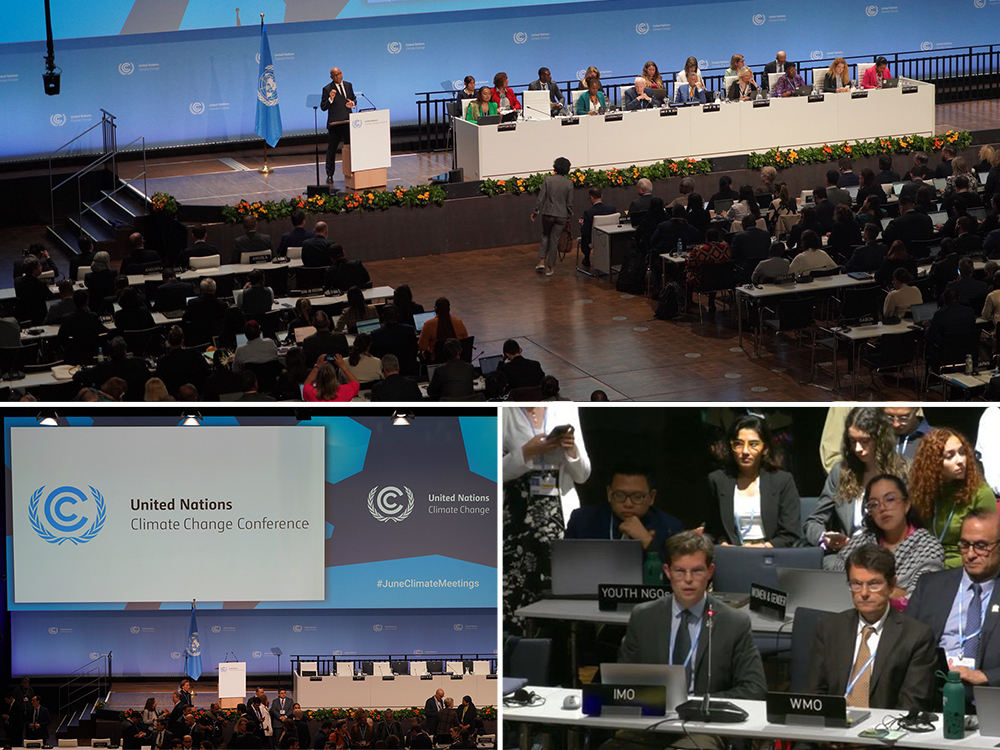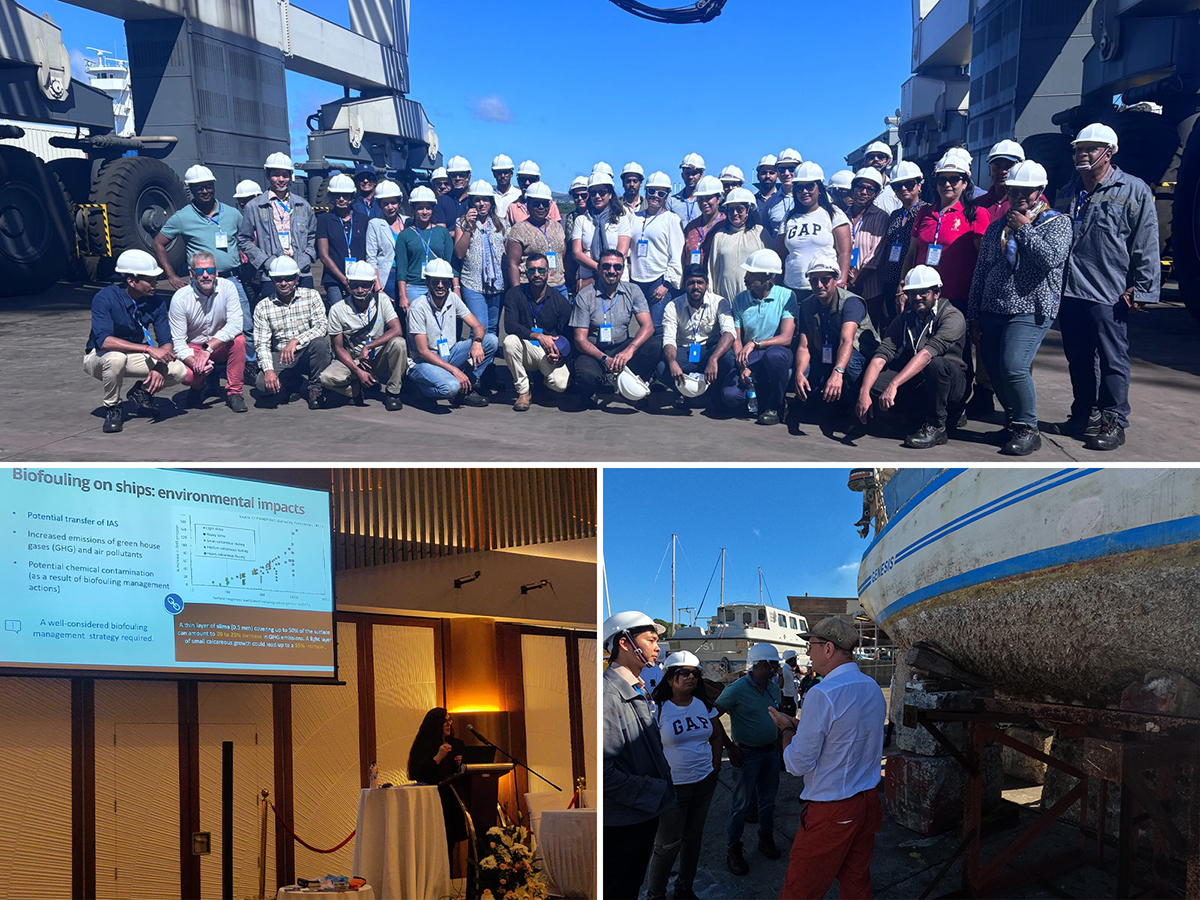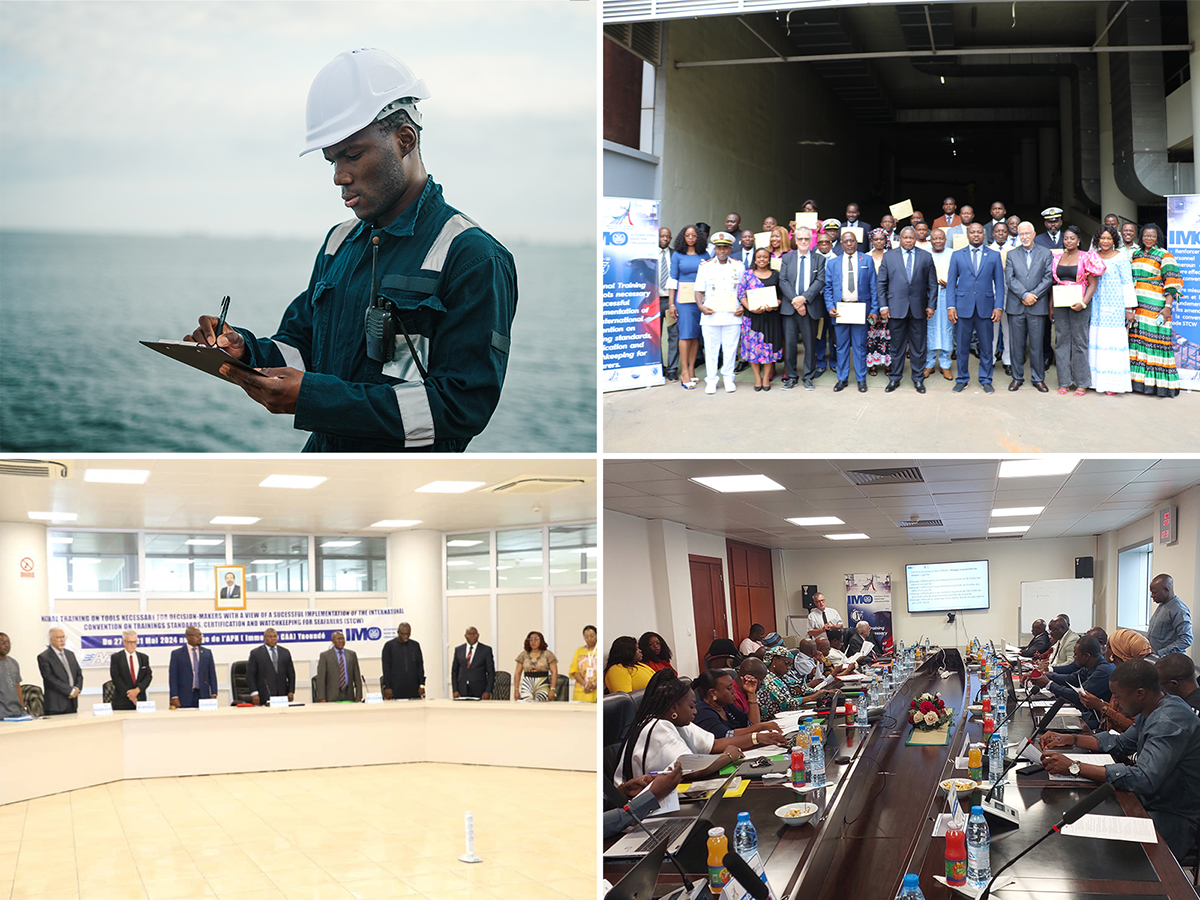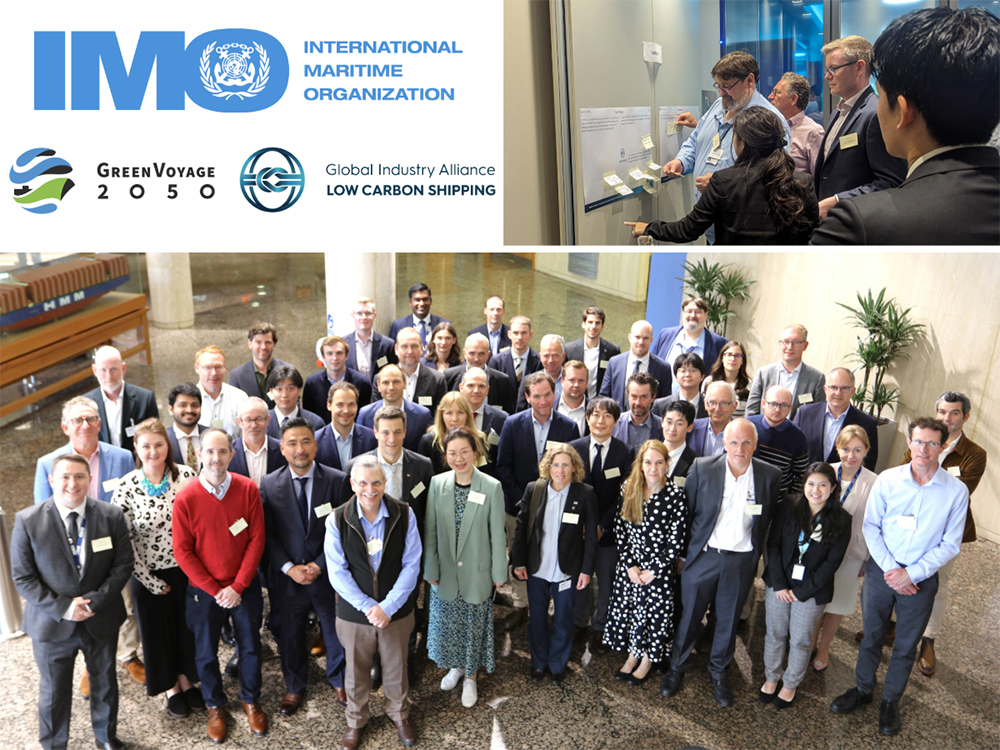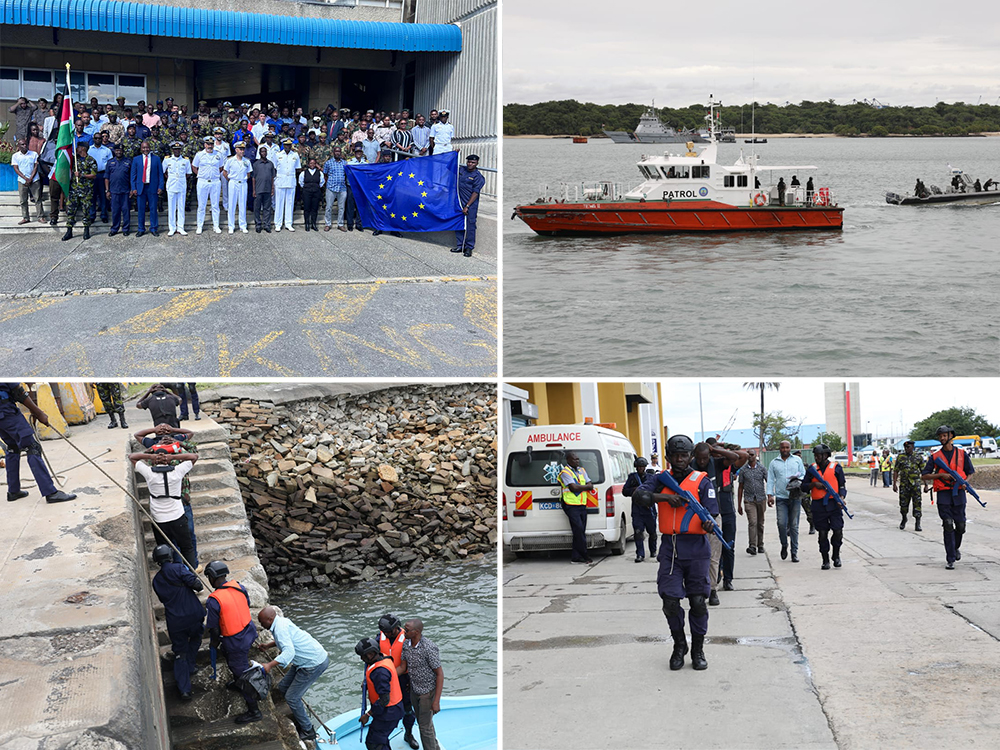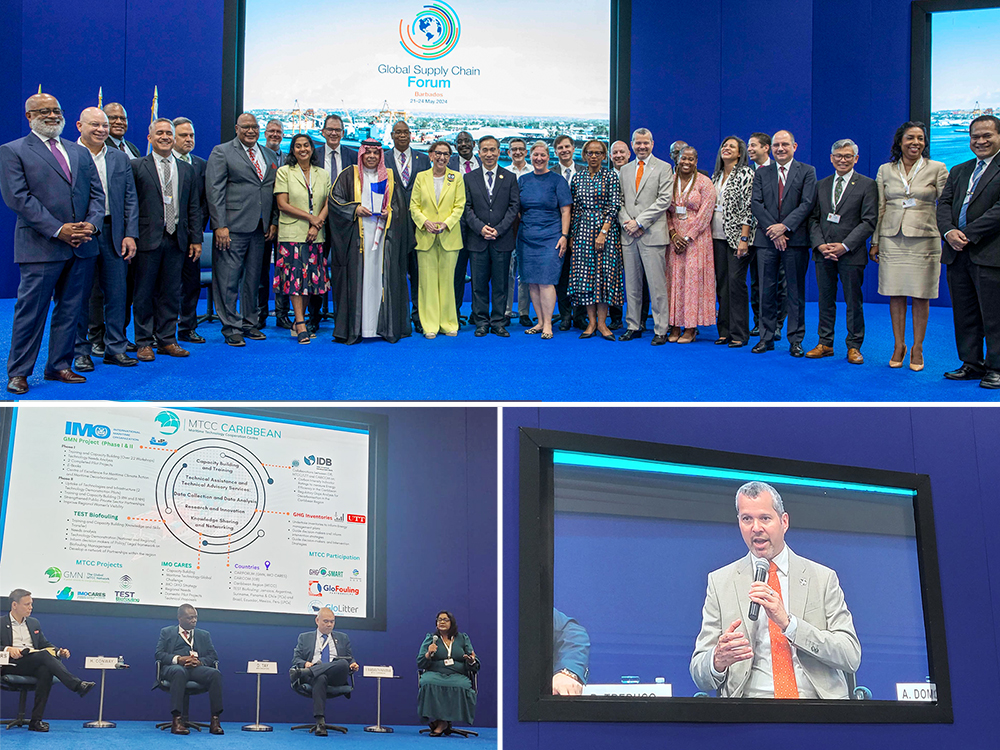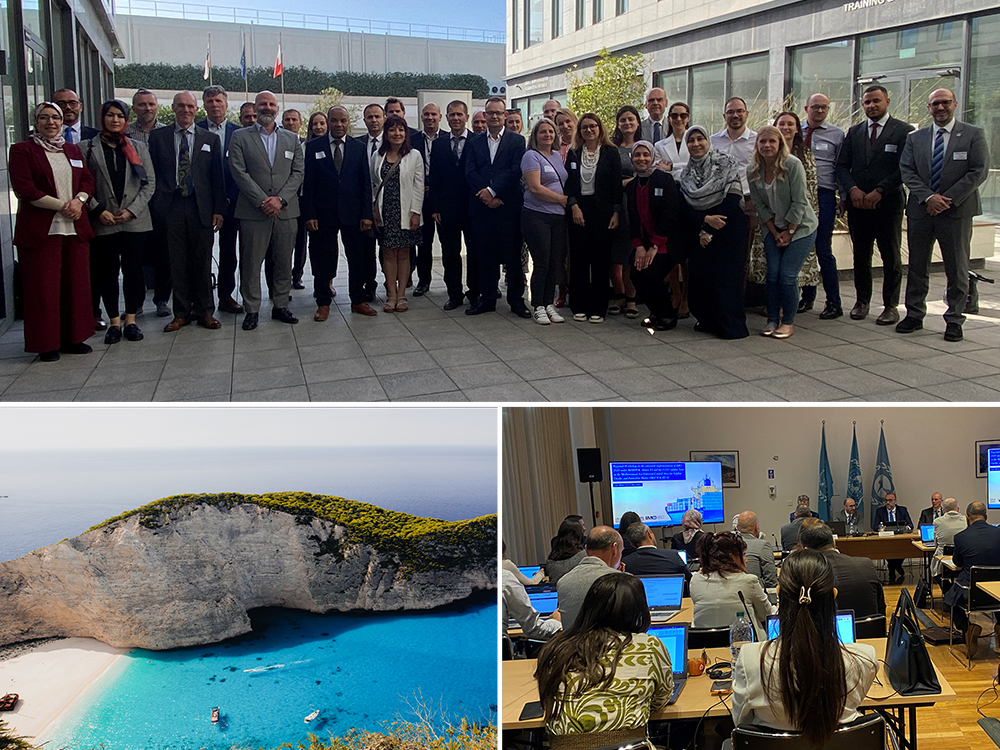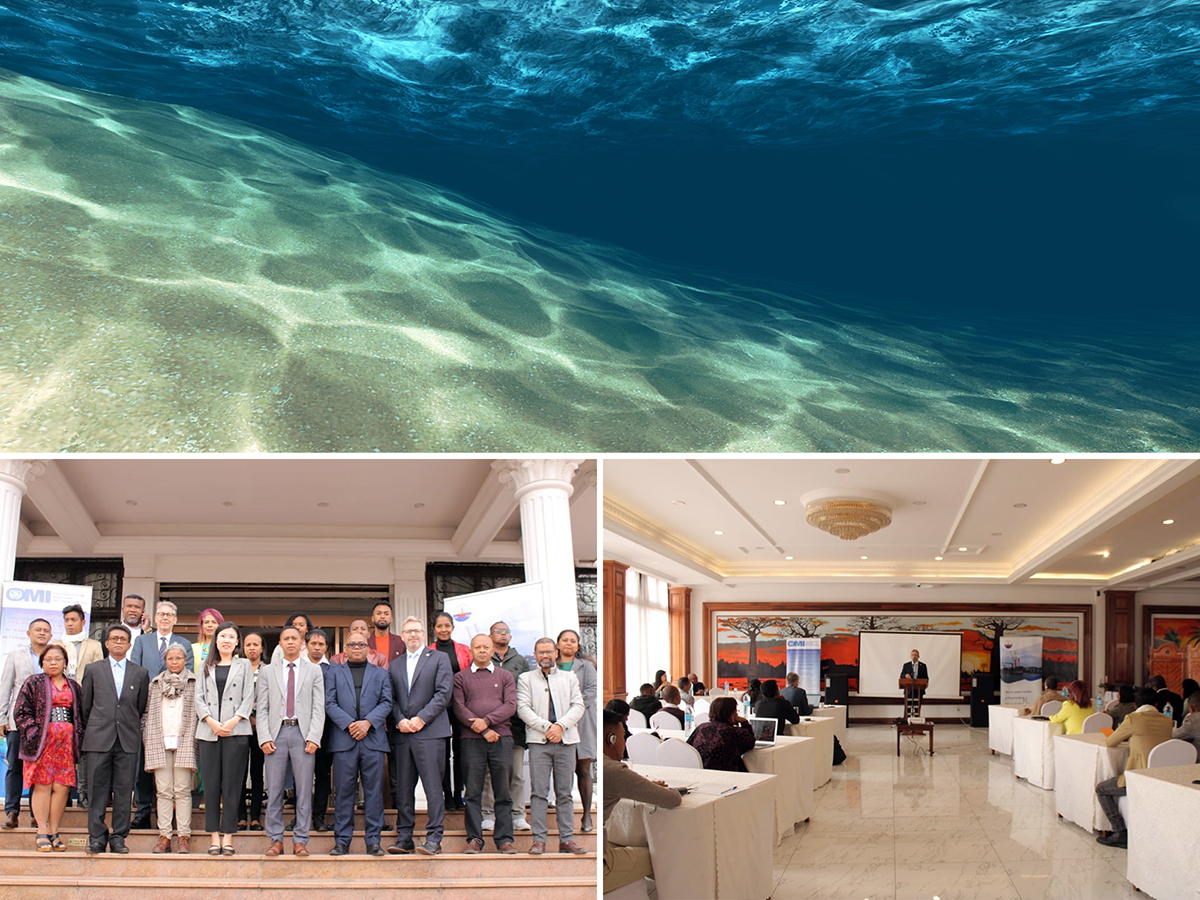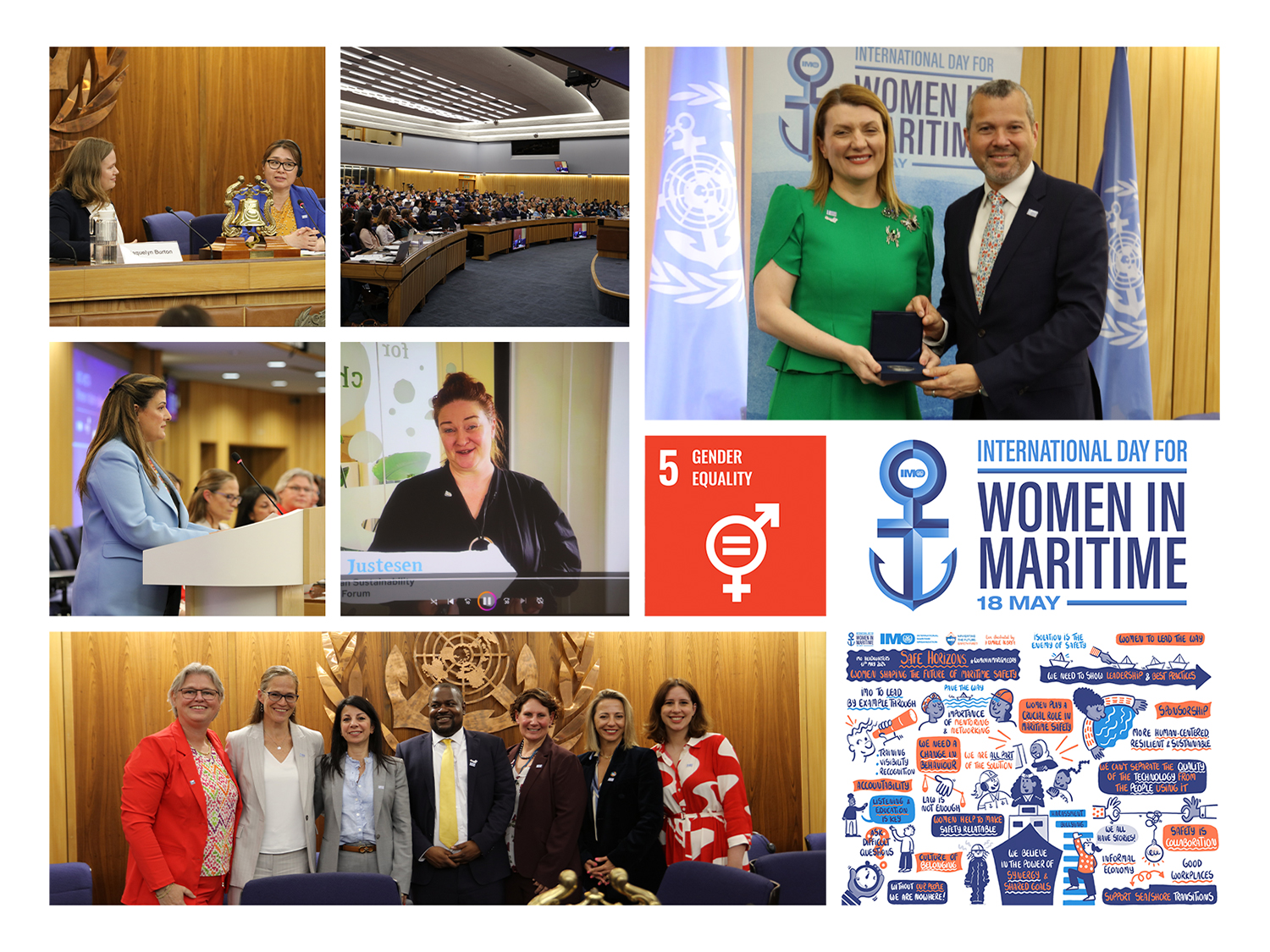What's New
Click here to view archives
IMO presents pathway to net-zero shipping at Bonn climate talks
IMO has outlined its latest progress and plans to decarbonize global shipping by or around 2050, in a submission to the Bonn Climate Conference.
Mauritian officials trained in dry-dock operations to combat biofouling
Mauritian government officials and other stakeholders have received training on dry-dock operations for biofouling prevention and management to help protect marine ecosystems. A pilot training course, held in Mauritius (27-28 May), saw 50 participants work through a new IMO training package developed under the GloFouling Partnerships project, which addresses the transfer of harmful aquatic species through biofouling.
Course boosts seafarer training and certification skills in Cameroon
Maritime officials in Cameroon have strengthened their knowledge and skills in administering the training, assessment and certification of seafarers, following a national training course delivered by IMO in Yaoundé on 27-31 May.
The training focused on the effective implementation of the STCW Convention and Code.
Low Carbon GIA Roundtable explores opportunities and challenges of Wind Propulsion Technology
The use of wind as an energy source for accelerating shipping’s decarbonization and the opportunities and challenges associated with wind propulsion technology (WPT) adoption were the focus of the inaugural “Wind Propulsion Technology” roundtable held at IMO Headquarters, London (30 May). The event was hosted by the Global Industry Alliance to Support Low Carbon Shipping (Low Carbon GIA).
Multi-agency exercise tackles piracy, illicit maritime activities in Kenya
Kenyan authorities have completed a multi-agency exercise aimed at boosting maritime security capabilities and coordination to combat illicit activities at sea – the first of its kind in the country.
IMO champions maritime decarbonization at Global Supply Chain Forum
IMO is advancing concrete measures to decarbonize shipping, while aiming to shield small island developing states and least developed countries from any potential negative impacts to their economies.
Getting ready for low sulphur ship fuel oil limits in the Mediterranean
States in the Mediterranean Sea are preparing to implement, in 2025, global laws which will require ships plying the Sea to meet stringent requirements to limit harmful pollution by Sulphur Oxides (SOx).
To support the implementation of the new cleaner air rules, a regional workshop was held (22-23 May) at the Regional Marine Pollution Emergency Response Centre for the Mediterranean Sea (REMPEC), in Malta.
Focus on carbon capture and storage in the sub-seabed at Madagascar training workshop
Protecting the oceans from dumping of hazardous wastes at sea through full implementation of the London Protocol (LP), including carbon capture and storage in the sub-seabed, was the subject of a national workshop in Antananarivo, Madagascar (21-23 May). The LP prohibits all dumping at sea, other than when explicitly permitted under the terms of the treaty, and contains measures for climate change mitigation.
Mentorship and training vital for women’s maritime success
Leading voices in the shipping industry have underscored the importance of mentorship and educational opportunities to bolster women’s profile in the male-dominated maritime sector. To mark International Day for Women in Maritime, a panel of experts discussed how to incorporate women’s perspectives in shaping the future of maritime safety.
